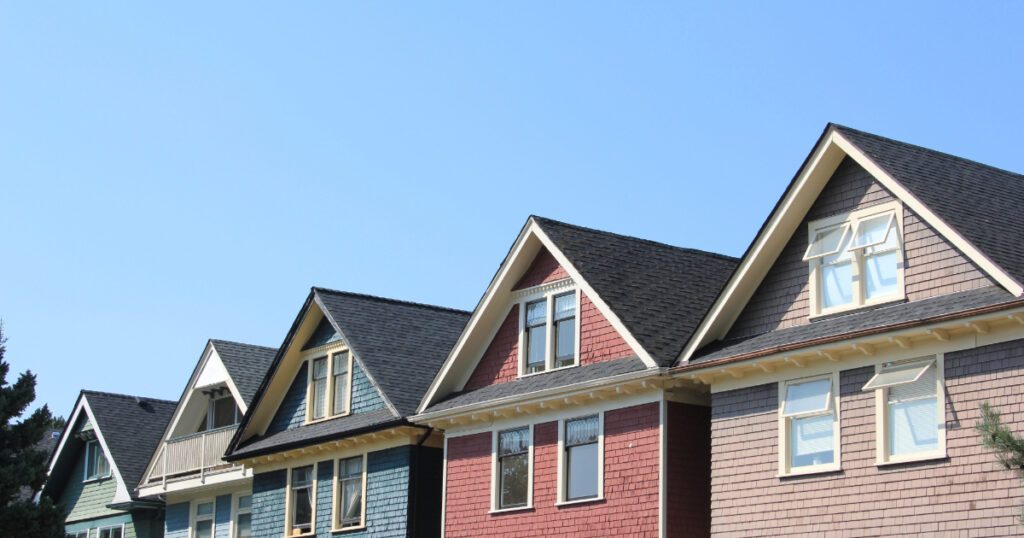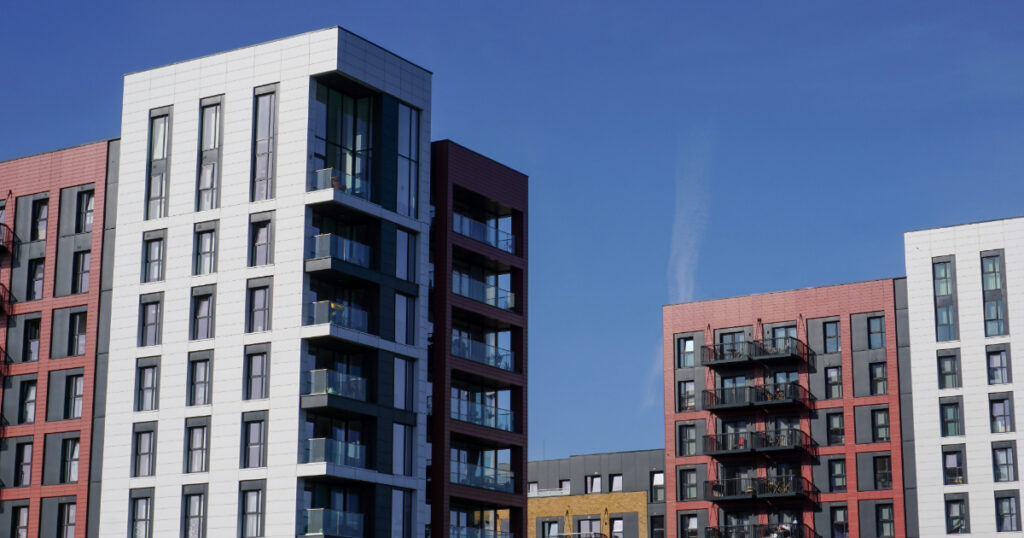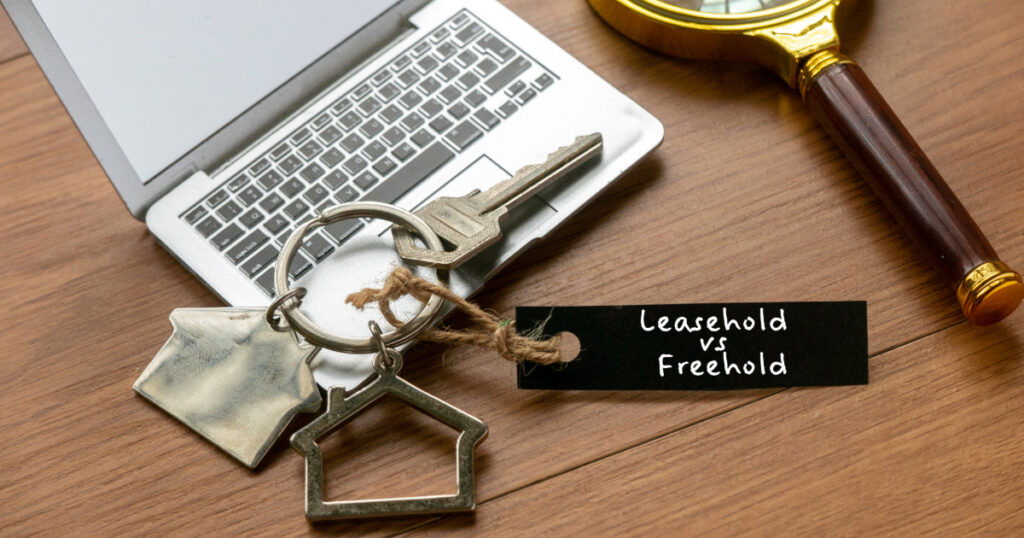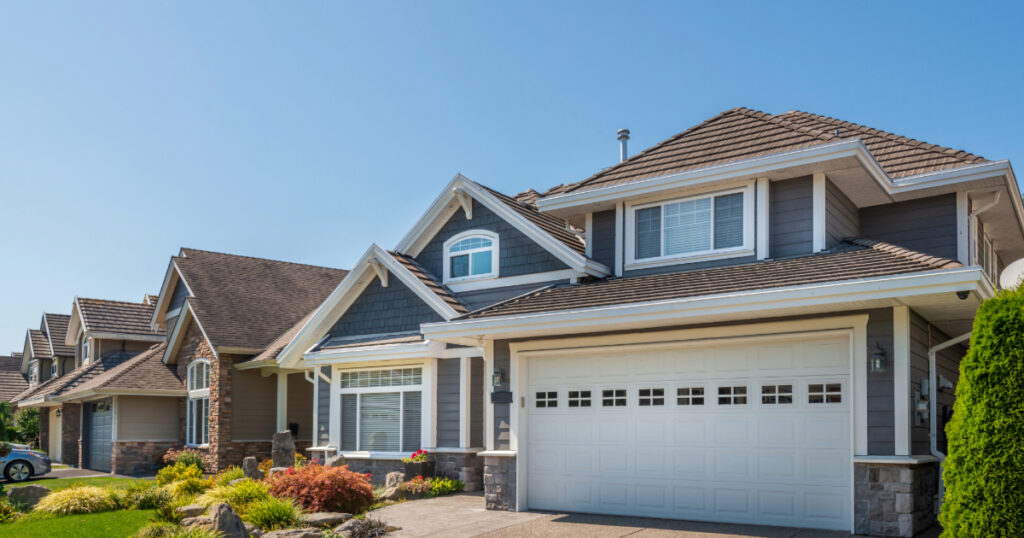What is the Difference Between Freehold and Leasehold Tenures
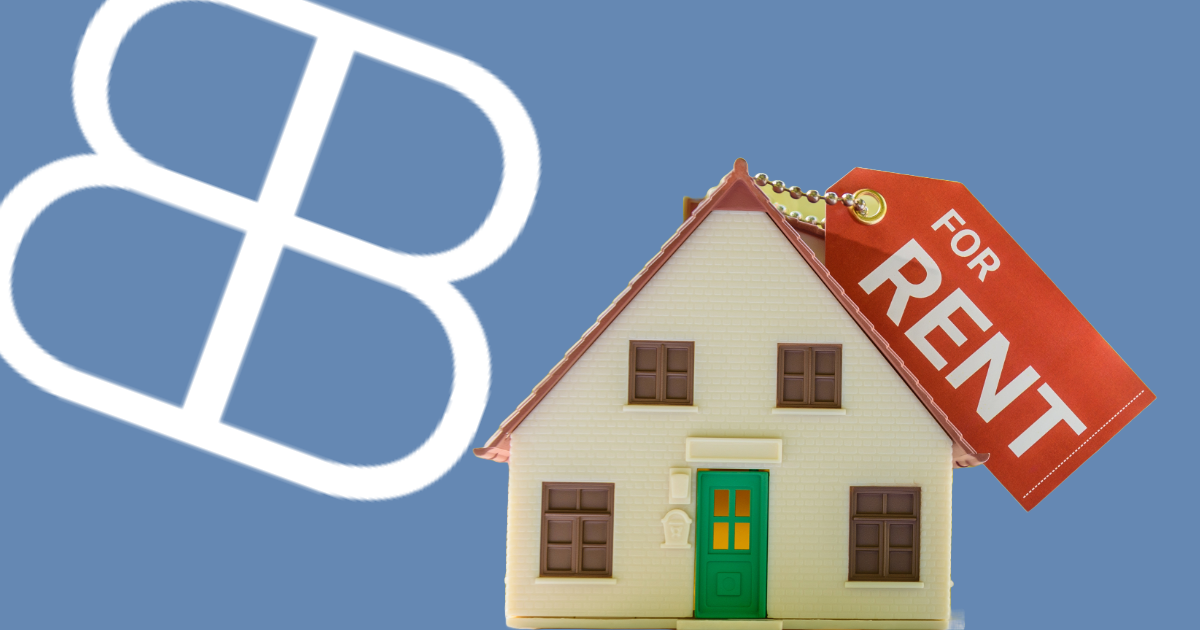
If you are buying a property in the UK, you will have undoubtedly come across descriptions in property listings denoting whether a property is freehold or leasehold. Some properties have varying types of leasehold too, making understanding tenures that little bit more confusing.
The good news is tenures are quite straightforward once you know the basics and deciding which one suits your needs best should be easy.
Let’s discover more by answering the question – what is the difference between freehold and leasehold tenures?
What are Freehold and Leasehold Tenures
To explain freeholds and leaseholds we have delve into the history of land ownership in England and Wales. If you are looking to buy a property in Scotland, the way land is registered and owned is slightly different.
Historically, land and property were passed down hereditary lines. There were three types of property ownership prior to the introduction of the Law of Property Act 1925; unrestricted freeholds, freeholds for life, and leaseholds.
Without getting too bogged down in the details an unrestricted freehold was owned indefinitely by an estate and passed down family lines. Freeholds for life were granted only for the lifetime of a person, and leasehold was ascribed to property on land owned by someone else.
In 1925, the law changed and simplified freehold and leasehold ownership, removing the freehold for life.
Today, freehold means you own the property and land alongside all restrictions and responsibilities.
Leasehold means you have a legal right to a portion of land or a property on land owned by someone else. For example, a flat in a larger complex of flats or a field used for grazing owned by someone else.
Typically, a leaseholder will bear no responsibility for the landowner’s obligations. Leaseholders however do bear responsibility to the landowner as set out in their leasehold contract.
A leasehold contract normally includes annual fees payable to the freeholder such as ground rent and service charges.
Interesting Fact About Freeholds
A misconception is that once you own the freehold, that land is 100% yours without third parties having interest or rights to the land.
In truth this is untrue. All land in England and Wales is owned by the monarch (currently Charles III) and as such, there are legal obligations to the crown when owning freeholds.
Aside from legal responsibilities to the crown, freeholders also must comply with local authority regulations, legislation around property management and provide access to certain bodies for the purpose of infrastructure. For example, a phone company could place a telephone mast on your land without consent providing they meet their own regulatory requirements.
Free phone and video consultations are provided in the U.K.
Get StartedWhat is a Peppercorn Leasehold Property?
The majority of leasehold property in the UK has both ground rent and service charges. These are paid to the freeholder to ensure the cost of the freehold is adequately covered. For example, you may find a service charge on a flat to replace cladding on the overall building.
Some leaseholds are ancient and over time the freeholder has reduced the terms imposed on leaseholders. By law they must still charge a fee to demonstrate a financial interest in the land, however a peppercorn lease will be a miniscule payment each year.
If you find a peppercorn lease, you can be reassured that your annual financial commitment will be much lower than normal, but you should still ensure you are meeting the terms of your leasehold contract.
See What Our Clients Have To Say
Why Do Flats Have Leaseholds?
Currently, flats have leaseholds because the overall building (freehold) will be owned by someone else.
Your leasehold will determine what rights you have to access, reside, and make use of in respect to your flat and the overall building. It is common for flat leaseholders to be jointly responsible for common areas.
It is expected that the laws around leaseholds will change in the future to provide more protections to leaseholders. The system in place at the moment allows freeholders to charge large amounts without much recourse for leaseholders.
This became prominent after the government passed legislation to remove unsafe cladding from buildings. Leaseholders found they were saddled with the cost of cladding removal and the amounts they are legally obliged to pay can run into hundreds of thousands of pounds.
Advantages of Buying a Freehold Property
When you own the freehold, you are able to manage the land and property as you see fit, providing you are acting within existing legislation.
Outside of covenants on your title deeds, you will have no ongoing financial obligation. Covenants like Chancel Repair liability can however mandate you pay fees toward your local parish for repairs to the church.
You can insure against such liabilities and your conveyancer will outline all your obligations prior to contracts been drawn up. Normally this occurs during the property searches phase of conveyancing.
Disadvantages of Buying a Freehold Property
You are not immune to financial burden as a freeholder. The value of your property is only partly in the property itself. If for example, your local authority builds a refuse facility on neighbouring land you could find your property drops in price.
As a freeholder, there is no direct oversight of your property or land, so any adverse instances will need to be challenged through the court system with whichever third party has wronged you.
Advantages of Buying a Leasehold Property
Buying a peppercorn lease property is advantageous because you have reduced your exposure to freeholder liabilities without much in the way of cost.
In general leaseholders enjoy less overall responsibility compared to freeholders, however most freeholders pass on financial costs to leaseholders. Recently this practice has caused significant financial hardship to leaseholders across the UK.
Disadvantages of Buying a Leasehold Property
Leaseholds can be extremely expensive.
You have your initial purchase value, for example buying a flat for £250,000.
That flat may then have a £3000 ground rent and £350 service charge payable each year, as an example. Escalating charges can also cause issues with lenders and may even be outside of their lending criteria.
Because the freeholder sets these charges at their own discretion, they can escalate over time. Scarily it is not unheard of for a flat owner to be saddled with a charge higher than the value of the property.
Speak to a Broker
Debt, income, and credit scoring are all uncomfortable words for most people and unfortunately crucial aspects of a mortgage application.
Understanding that it is rare for a mortgage to be out of the question should prove reassuring and a mortgage broker will be best placed to help you navigate the mortgage process.
Boon Brokers is a Whole of Market Mortgage, Insurance and Equity Release Broker. Boon Brokers offers fee free mortgage advice.
Contact Boon Brokers to discuss any debt you have or your mortgage goals today.
Gerard BoonB.A. (Hons), CeMAP, CeRER
Gerard is a co-founder and partner of Boon Brokers. Having studied many areas of financial services at the University of Leeds, and following completion of his CeMAP and CeRER qualifications, Gerard has acquired a vast knowledge of the mortgage, insurance and equity release industry.Related Articles
- Guide to Converting a House into Flats
- Can I Get a Mortgage on a Studio Flat?
- Common First Time Buyer Mistakes
- Everything You Need to Know About Stamp Duty – 2024 Guide
- How Much Does Equity Release Cost?
- Airbnb Mortgage – Buying an Airbnb Rental Home
- Switching to a Buy to Let Mortgage
- Mortgage Terminology Explained
- Switching to an Interest Only Mortgage





